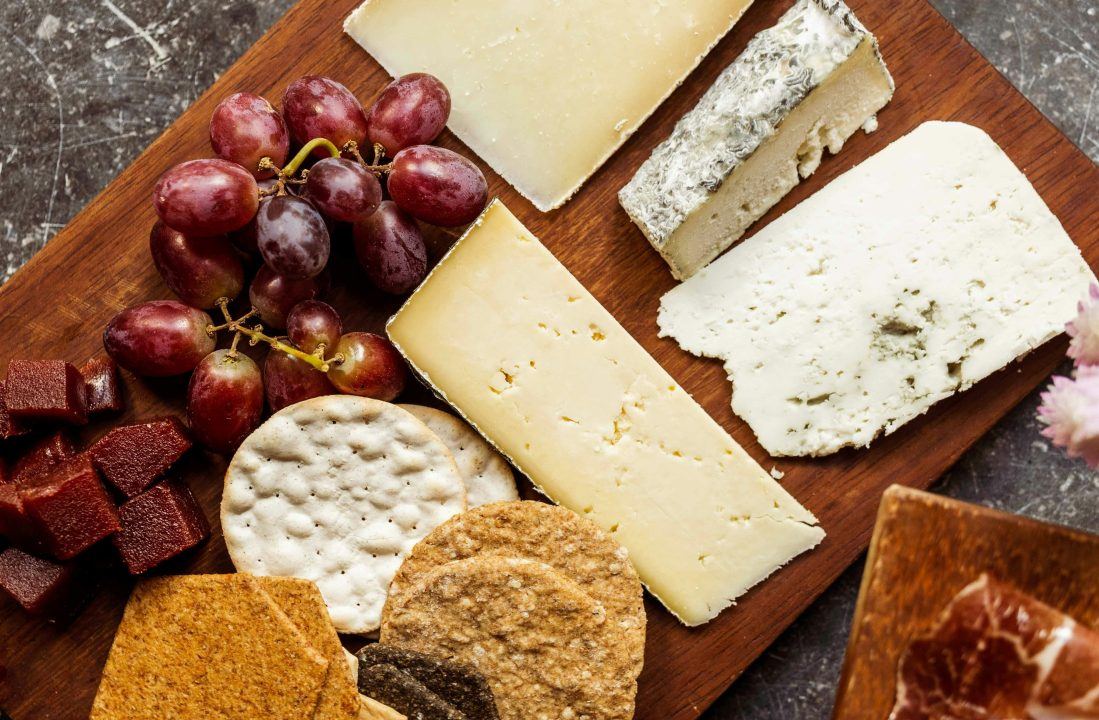A viral TikTok trend has helped boost sales of Scottish cheese to a 40-year high.
Graham’s Family Dairy have noted a 40% rise in cottage cheese sales in the last year to levels not seen since the 1980s.
The Stirlingshire-based company has attributed the rise to a demand for high-protein products, retro trends and viral social media posts.
New research from The Knowledge Bank has revealed that consumers have extended their love of cheese, developing a taste for new artisan products, while finding new ways to enjoy the household staple.
Some 80% of shoppers enjoy cheese as a weekly household staple, and cheddar remains the nation’s favourite variety – with 69% having enjoyed it in the last three months.
However, innovative artisan producers have shown that there are other routes for growth in the market – with speciality cheeses enjoying a popularity boom that has translated to a 12% rise in sales across all GB grocery channels.
The soft cheese retail market has also experienced some interesting trends, as a decades-old favourite has returned to prominence.
The product in question has harnessed the power of social media to challenge consumer perception and boost sales.
The stinky staple, cottage cheese, has seen its popularity surge among younger, health-conscious consumers. Its creamy texture, alongside nutritional benefits such as a high protein content, have hit home with TikTok and Instagram users, where there is a growing trend among food influencers to transform it into almost anything, from cookies to ice cream.
Anne-Laure Farrar, UK Market Insight Manager from The Knowledge Bank, explained: “The importance of viral trends cannot not be denied, and witnessing some varieties blow up in popularity thanks to TikTok and Instagram is brilliant as it can breathe new life into long-established products which have been able to capture a new audience.”
Sales in Scotland reflect this, where cottage cheese has outperformed other soft cheese varieties in growth – representing 14.1% in sales and 12.7% in volume respectively.
Changing consumer preferences have also been noted by Paul Grant, Chairman of the Scottish Dairy Growth Board (SDGB), as Scottish cheese brands benefit from harsher and costlier conditions on imports.
He said: “We are very encouraged by the response to our homegrown companies and the growth they are achieving. This is part of a journey we are on – there’s no doubt a role for Scottish cheese in UK and international markets, and the results so far have been very encouraging and indeed, transformative, for some companies.”
The SDGB is financed by the Scottish Government, supporting the growth of Scottish cheese (and dairy) in UK and International markets. In 2021, it set a target of £200m additional sales of Scottish cheeses by 2030, of which more than £50m has already been reached.
Mr Grant continued: “It’s critically important that the quality and standard of cheeses meets the consumers’ aspiration, and the research is telling us that Scotland’s producers are doing this, and more. We have momentum, and I’m confident that interest will continue to grow so long as the service and quality continues to deliver.”
The report also states the increasing cost due to inflation hasn’t hampered market growth, with consumers showing they are happy to spend more for a product they deem to be of higher quality.
Robert Logan, Head of Co-op Development at the Scottish Agricultural Organisation Society (SAOS), added: “We have seen great success around new product launches in the cheese sector, specifically around organic cheeses which is extremely promising. In a time where it is perceived that people are tightening the purse-strings, it just goes to show that cheese is still a vibrant and thriving sector with consumers actively trying new produce.”
This evolving trend towards artisan cheeses has also been embraced by major supermarkets. Tesco was swift to respond, stocking a wide variety of more sophisticated cheeses on the back of changing consumer preferences. This move has made artisan and specialty products more accessible to regular consumers, helping drive the new trend even further.
Anne-Laure from The Knowledge Bank concluded: “The nation’s love for cheese has not been dampened by the current financial climate and it’s great to see the retail market perform well during this time. Seeing the effect of social media on the category has been amazing, with new audiences opening up via these trends.
“The growth in consumer interest in specialty products represents a massive growth opportunity for artisan producers across the country. What is most promising is how brands are adapting to this changing landscape to seek out new audiences for their products. The range of cheese options on our shelves has never been so diverse and the outlook for the sector looks very promising indeed.”
Follow STV News on WhatsApp
Scan the QR code on your mobile device for all the latest news from around the country




























